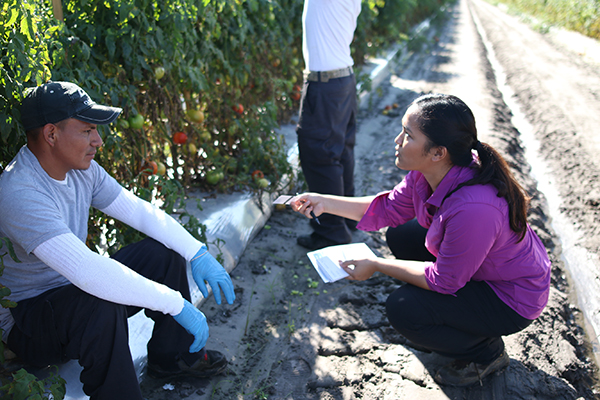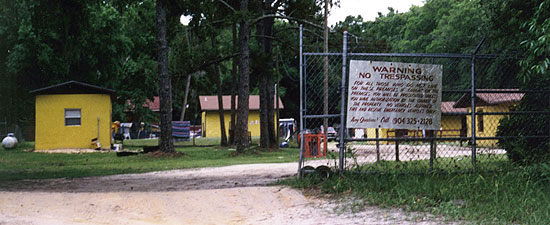
In one of his last official acts in office, President Obama signed an eloquent statement on the scourge of slavery that has plagued this country, in one form or another, for centuries, declaring January “National Slavery and Human Trafficking Prevention Month.” The statement began:
BY THE PRESIDENT OF THE UNITED STATES OF AMERICA
A PROCLAMATION
Our Nation wrestled with the issue of slavery in a way that nearly tore us apart — its fundamental notion in direct contradiction with our founding premise that we are all created equal. The courageous individuals who rejected such cruelty helped us overcome one of the most painful chapters in our history as we worked to realize the promise of equality and justice for all. But today, in too many places around the world — including right here in the United States — the injustice of modern slavery and human trafficking still tears at our social fabric. During National Slavery and Human Trafficking Prevention Month, we resolve to shine a light on every dark corner where human trafficking still threatens the basic rights and freedoms of others…
It continued:
… Every action we take at home, from the clothing we wear to the food we eat, is connected to what happens around the world. As a Nation, we have worked to address the problem of forced labor in our supply chains, and as individuals, we must strive to be conscientious consumers…
And it concluded:
… As leaders in the global undertaking to end the exploitation of human beings for profit, we must always remember that our freedom is bound to the freedom of others. This month, let us find inspiration in America’s progress toward justice, opportunity, and prosperity for all and reaffirm our pledge to continue fighting for human rights around the world.
It was a forceful — and final — declaration of the Obama administration’s commitment to the fight against forced labor, an administration that awarded the CIW a Presidential Medal for the Fair Food Program’s extraordinary efforts in combatting modern-day slavery, an administration that worked closely with the CIW in training federal law enforcement officers, prosecuting farm bosses, and shaping federal labor policies to stop human trafficking.
Fair Food Program does its part…

Fittingly, the two farm bosses who were discovered by the FFSC last spring running a forced labor operation on a Fair Food Program farm and indicted by federal authorities on charges of “conspiracy to provide and obtain forced labor,” were sentenced last week in federal court in Miami.
In a press release entitled, “Two Mexican Nationals Sentenced to Prison for Participating in Forced Labor Scheme,” the US Department of Justice announced the sentencing:
Two Mexican nationals, who were working in the Homestead, Florida, area and elsewhere, were sentenced today to prison for their participation in a conspiracy to obtain and provide forced labor…
Agustin Mendez-Vazquez, 44, and his son, Ever Mendez-Perez, 24, both originally of Mexico, pleaded guilty before U.S. District Judge Robert N. Scola Jr. in October 2016. Agustin Mendez-Vazquez pleaded guilty to one count of conspiracy to provide and obtain forced labor, in violation of Title 18, United States Code, Section 1594(b), and was sentenced to 72 months’ imprisonment. Ever Mendez-Perez pleaded guilty to one count conspiracy to encourage and induce illegal aliens to reside in the United States, in violation of Title 8, United States Code, Section 1324(a)(1)(A)(v)(I), and was sentenced to twelve months’ imprisonment. Agustin Mendez-Vazquez has also been ordered to pay restitution to the victims of his scheme.
The US Attorney and Homeland Security officials who worked the prosecution were quoted in the statement:
“Forced labor equates to modern-day slavery and the United States Attorney’s Office, together with our federal, state, and local law enforcement partners stand ready to prosecute those individuals who facilitate these illegal practices,” said U.S. Attorney Ferrer. “Agustin Mendez-Vazquez and Ever Mendez-Perez’s convictions stand as a reminder to the public that the law enforcement community will not tolerate human trafficking – in any form…”
“When individuals are forced and exploited for their labor, it erodes our society’s belief in the freedoms afforded to us under the laws of our nation,” said Mark Selby, Special Agent in Charge of HSI Miami. “HSI will continue to investigate this type of illegal activity and ensure that those responsible are brought to justice.”
Finally, the release concluded with a tip of the hat to the FFSC and the CIW for their part in the discovery and investigation of the operation:
The Fair Food Standards Council, a non-governmental organization that monitors and enforces the rights of migrant farmworkers in the Fair Food Program, referred this matter to law enforcement. Mr. Ferrer would like to thank the Fair Food Standards Council, as well the Coalition of Immokalee Workers, the International Rescue Committee, and VIDA Legal Assistance, Inc., for their assistance with this case.
Fair Food Program proves its mettle once again…
For some context on this latest battle in the CIW’s war on forced labor, it is worth reprising the following reflection, first published last spring when the indictment was announced. The following is an extended excerpt from that post:
As longtime readers of this site know, the CIW has been a leader in the modern-day movement to end forced labor since the movement’s inception over two decades ago. From our Anti-Slavery Campaign page:
The CIW’s Anti-Slavery Campaign has uncovered, investigated, and assisted in the prosecution of numerous multi-state, multi-worker farm slavery operations across the Southeastern U.S., helping liberate over 1,200 workers held against their will. The U.S. Department of State called the CIW a “pioneer” in the worker-centered and multi-sectoral approach to slavery prosecution, and hailed the CIW’s work on some of the earliest cases of slavery as the “spark” that ignited today’s national anti-slavery movement. Since those early cases, the CIW has continued to shape the national movement against slavery, between playing a key role the passage of the 2000 Trafficking Victims Protection Act, being appointed by the Florida legislature to the Statewide Human Trafficking Task Force, and co-founding the national Freedom Network USA and the Freedom Network Training Institute (FNTI). Through the FNTI, the CIW trains state and federal law enforcement and non-governmental organizations throughout the U.S. on how to identify and assist people held against their will in slavery operations.
But the implementation of the Fair Food Program in 2011 marked the beginning of a new chapter in our work to end forced labor in agriculture: Prevention. Also from the same page (emphasis in bold added):
Today, the implementation of the Fair Food Program has ushered in the newest phase of the CIW’s anti-slavery efforts, that of prevention, whereby the market consequences built into the FFP, including zero tolerance for forced labor, encourage participating growers to actively police their own operations, and the worker-to-worker education program at the heart of the FFP informs and empowers tens of thousands of workers to serve as monitors to identify and expose slavery operations wherever they might be present.
And while the FFP’s market-based economic incentives have indeed helped transform the Florida tomato industry into what one public policy expert called “the best working environment in American agriculture,” no one ever believed that the economic incentives would be sufficient, in and of themselves, to eliminate forced labor entirely from an industry called “ground zero for modern day slavery” by federal prosecutors just a few short years ago.
That is why the Fair Food Program includes multiple, redundant mechanisms — from worker-to-worker education on rights under the Program, to the 24-hour complaint line, to the Program’s uniquely penetrating field and farm office audits — in its design to ensure that when violations do arise they are identified and remedied as effectively, and efficiently, as possible.

And in this latest case, all three of those mechanisms came into play and functioned just as designed, resulting in the elimination of what appears to have been a particularly harsh situation. While we had all hoped that forced labor would be a thing of the past due to the market consequences to growers if associated with such conduct, at the same time we knew that there would be an ongoing need for the FFP’s stringent and thorough enforcement mechanisms.
In short, while the market consequences built into the program will indeed prevent the vast majority of human rights violations on participating farms, the enforcement mechanisms will catch the rest. Inexorably, those systems, together, are ridding Florida agriculture of its worst actors and its worst abuses.

